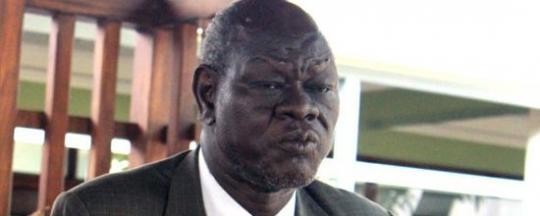A three-day meeting of South Sudanese opposition groups was concluded in Nairobi on Sunday, an influential opposition leader said.
Lam Akol, a prominent opposition leader who resigned from Kiir’s government earlier this month had invited all opposition factions to attend a three-day meeting to discuss the ongoing political developments in South Sudan.
Lam Akol confirmed to Radio Tamazuj that the meeting was concluded yesterday, saying recommendations of the meetings would be announced today.
The opposition leader disputed reports that the SPLM-Former Detainees (SPLM-FDs) and the Federal Democratic Party (FDP) withdrew from the meetings. He noted that the two opposition groups refused only to participate in a consultative meeting on Thursday.
For his part, Gabriel Changson Chang, leader of the Federal Democratic Party, confirmed that they boycotted the meeting called for by Lam Akol, saying they only took part in the consultative meeting.
Changson further said Lam Akol refused to give ample time for a preparatory committee to arrange the opposition groups meetings in Nairobi. He added that Lam Akol also was trying to push their group to adopt his view which says the peace agreement is over.
Atif Kiir, member of the SPLM-FDs, said they decided to boycott the meetings because they are still part of the unity government in Juba. He pointed out that their group was represented by Kosti Manibe.
Peter Adwok Nyaba, a leading figure in the SPLM-IO faction allied to Riek Machar, confirmed that the meeting was concluded in Nairobi, saying they came up with a number of recommendations on political, security, economic and humanitarian issues.
He pointed out that Lam Akol’s faction and another group allied to former Western Equatoria governor are still new. Nyaba claimed that last August’s peace deal is dead after attempts to kill former first vice president Riek Machar.




